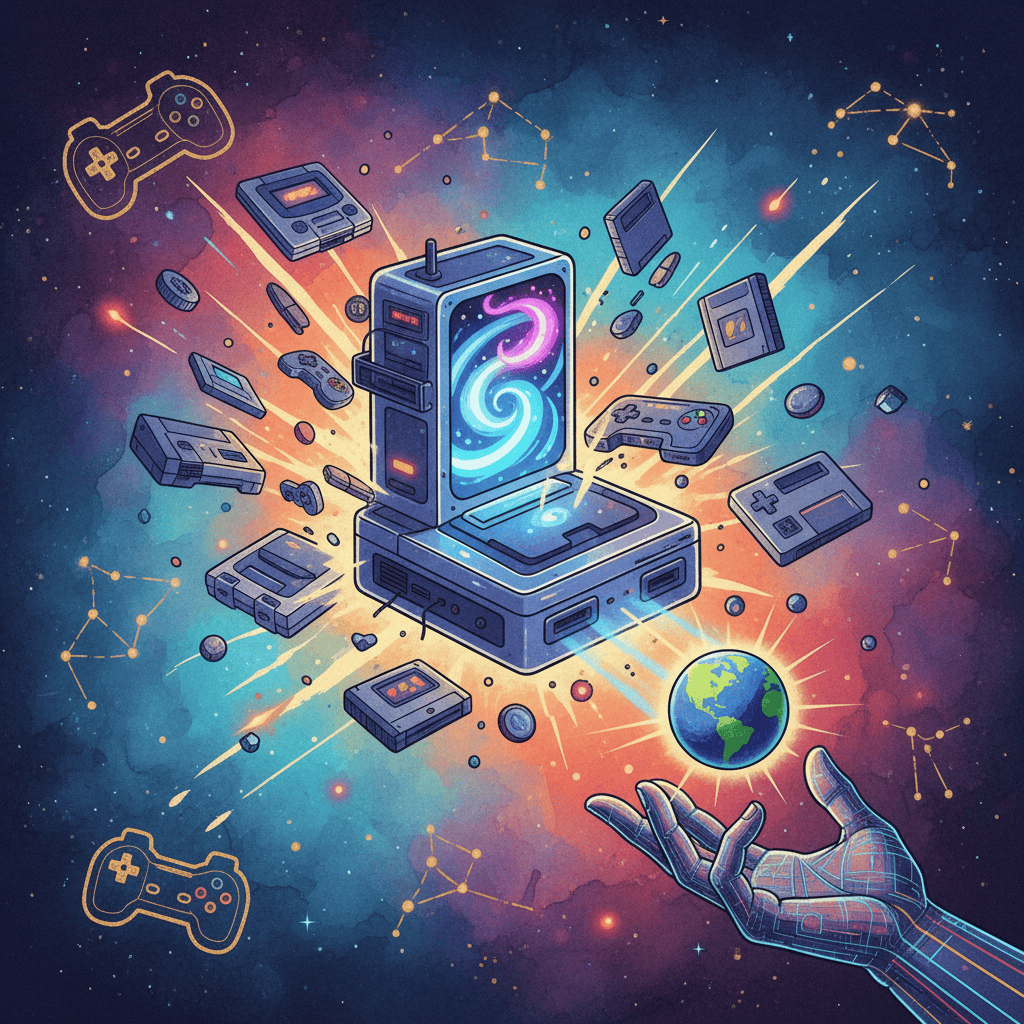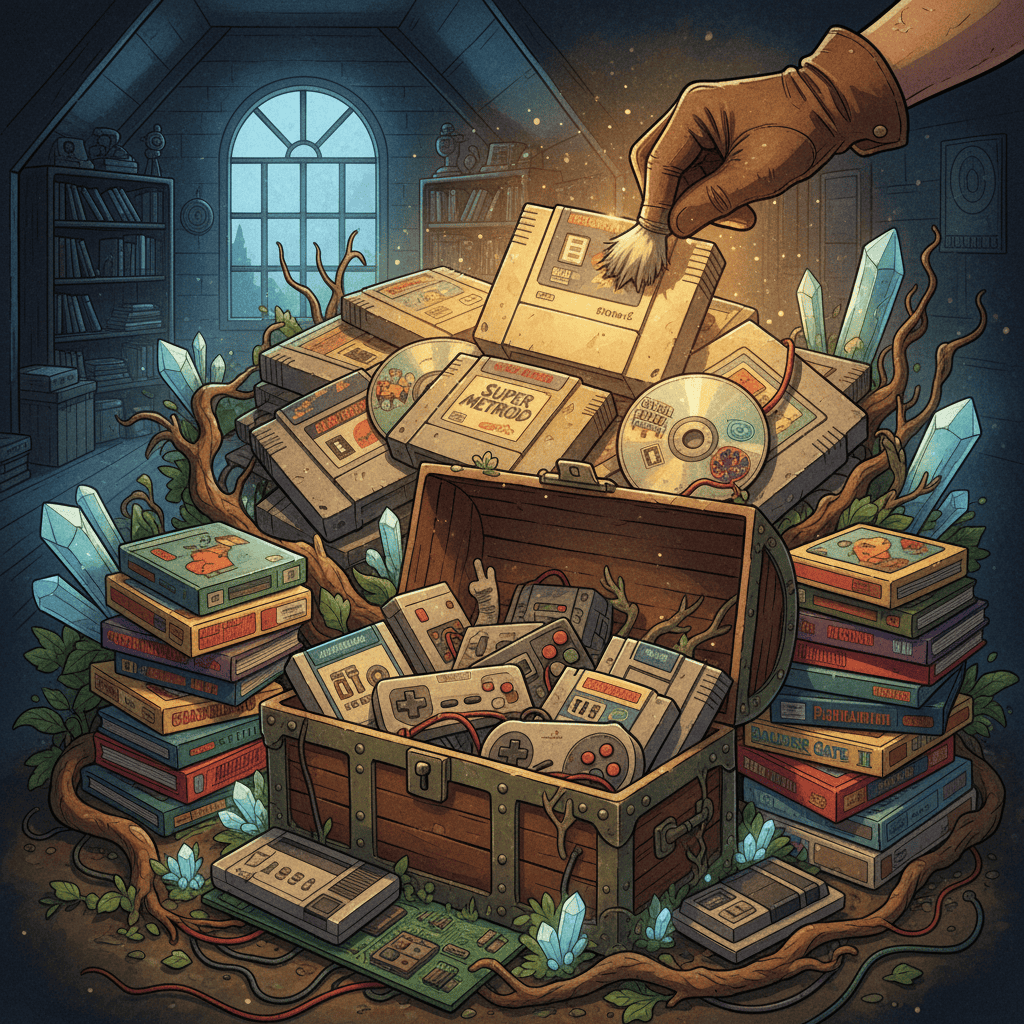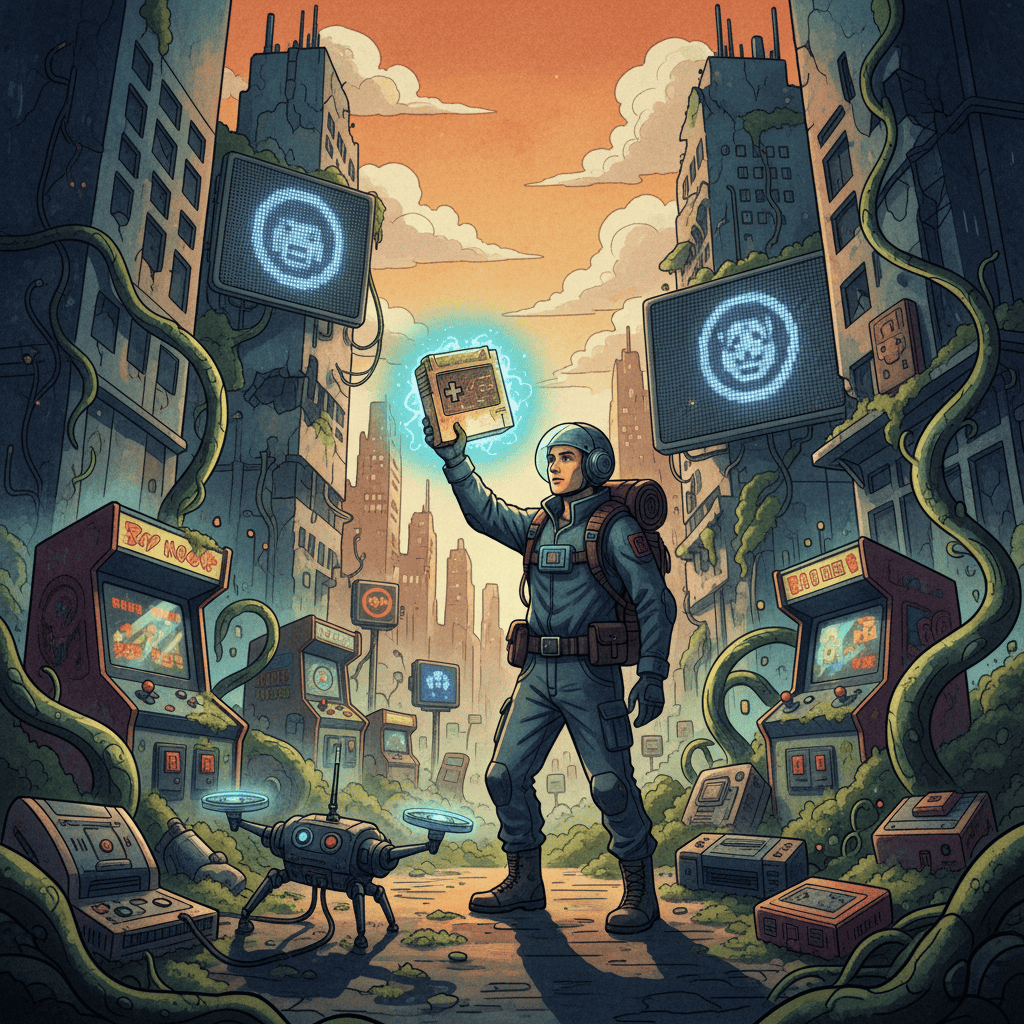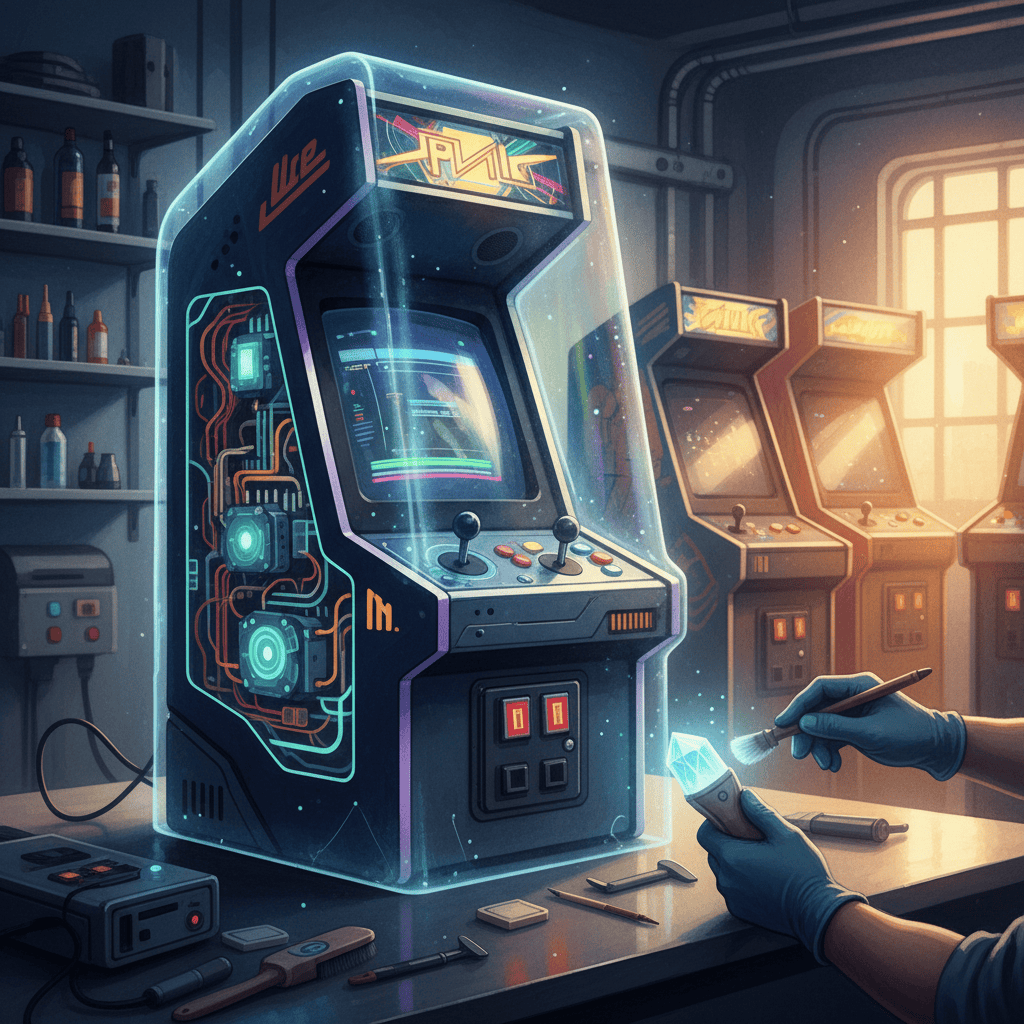So, you’re building the ultimate retro arcade collection in 2025? Ambitious! Let’s be honest, it’s a daunting task. The sheer volume of amazing games, the variations in hardware, and the ever-fluctuating prices… it’s enough to make even the most seasoned gamer crack under the pressure. This isn’t just about buying games; it’s about curating an experience, a journey through gaming history. This guide will help you navigate that journey.
Defining Your Retro Gaming Persona: Veteran, Indie Fan, or Curious Newcomer?
First things first: who are you? Your ideal collection will be vastly different depending on your background and goals.
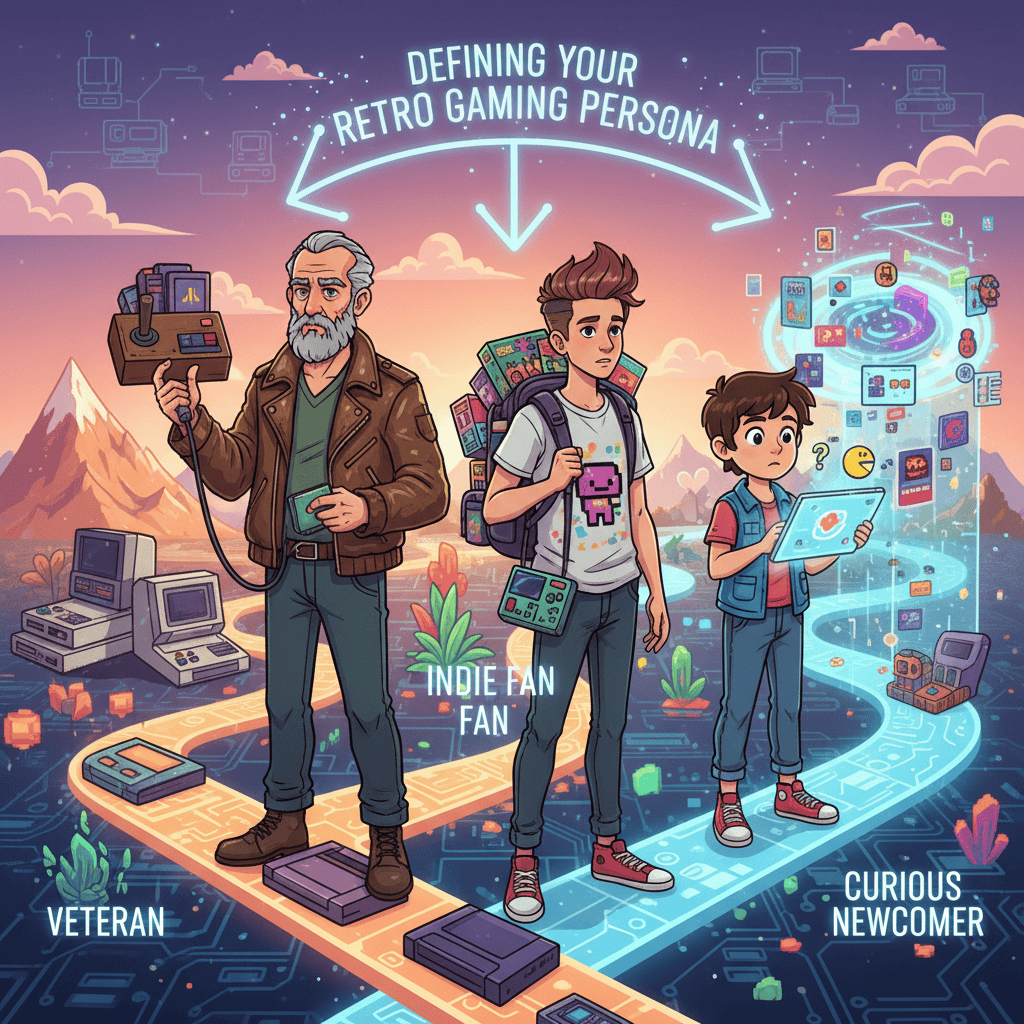
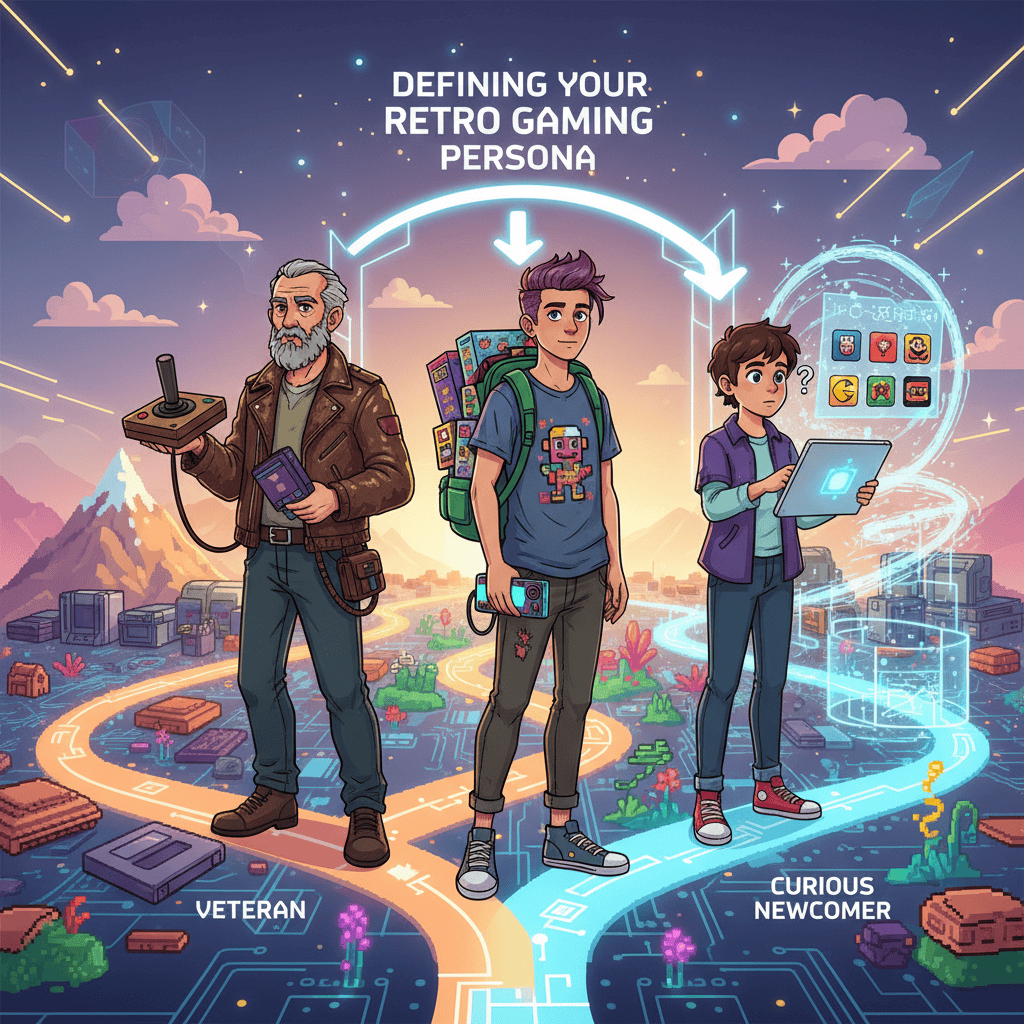
- The Retro Veteran: You lived through the golden age of arcades. You’re hunting down those specific titles that evoke powerful memories. You know the nuances of different cabinet versions and are probably already deep into ROM sets and custom builds. Your focus is on authenticity and recreating that specific feeling, often involving rare game hunting.
- The Modern Indie Fan: You appreciate the pixel art aesthetic and tight gameplay loops of retro games, but you’re not necessarily attached to specific titles from your childhood. You’re looking for that unique thrill, the challenge, the pure skill-based satisfaction. You’re equally happy with a modern indie title channeling classic arcade mechanics as with a genuine ’80s classic.
- The Curious Newcomer: You’re diving into retro gaming for the first time, drawn in by the charm and challenge. You need guidance on what to play, which systems are worth considering, and how to find authentic experiences without getting bogged down in technical details.
Hardware Holy Grail: Cabinets, Consoles, and Emulation
This is where things get serious. Your collection’s foundation is the hardware.
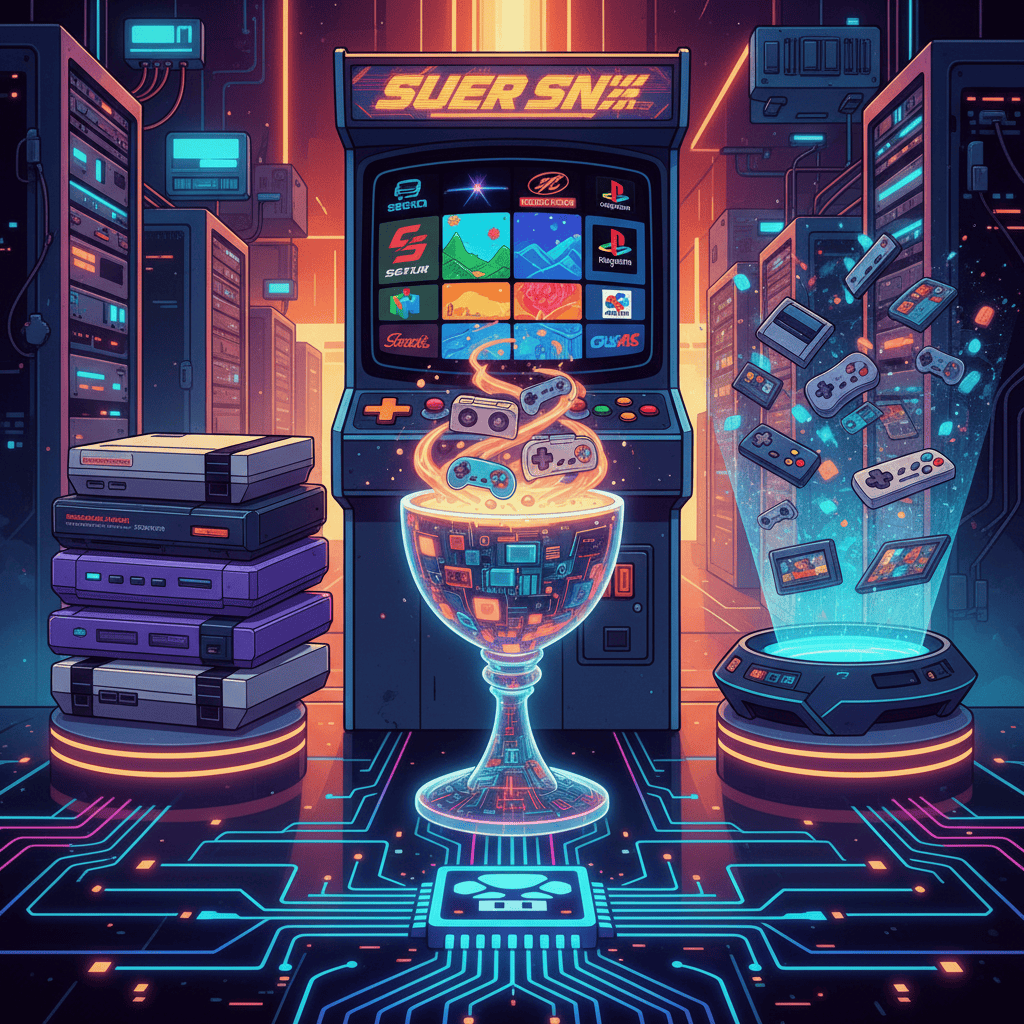
- Arcade Cabinets: The ultimate experience, but also the most expensive and space-consuming. The choice is between original cabinets (a costly but rewarding pursuit), refurbished cabinets (a happy medium), and custom builds (the most flexible, but requires significant technical skill). My personal recommendation? Start small. A single, meticulously restored cabinet for a beloved game (like my cherished Galaga unit) is far more satisfying than a half-dozen poorly maintained machines.
- Home Consoles: This is where you find the greatest variety. The NES, SNES, Genesis, Neo Geo, TurboGrafx-16 – each system boasts unique titles. Building around a single system allows for focused collecting. Personally, I started with a Neo Geo AES and haven’t regretted it. The sheer quality of the titles is astounding.
- Emulation: MAME (Multiple Arcade Machine Emulator) is your friend, especially for the newcomer. It opens up access to thousands of games without the expense of physical hardware. However, finding high-quality ROMs and setting up an emulator correctly takes time and research. Don’t underestimate the learning curve.
My Top 5 Must-Have Retro Consoles (for varied gaming styles)
| Console | Strengths | Weaknesses | Gamer Persona |
|---|---|---|---|
| Nintendo NES | Iconic library, accessible, relatively cheap | Limited graphical capabilities | Retro Veteran, Newcomer |
| Super NES | Superior graphics to NES, diverse game genres | Controller ergonomics can be divisive | Retro Veteran, Newcomer |
| Sega Genesis | Fast-paced action games, unique sound chip | Less diverse library than SNES | Retro Veteran, Indie Fan |
| Neo Geo AES | Stunning graphics, arcade-perfect ports | Expensive, limited game library | Retro Veteran, Indie Fan |
| Atari 2600 | Historical significance, simplicity | Extremely limited graphics, simplistic gameplay | Retro Veteran |
Key Takeaway: Don’t be afraid to start small and focus. A well-curated collection of a few key systems and their most iconic titles is far more enjoyable than a sprawling, disorganized mess.
Software Selection: Genre Deep Dives and Hidden Gems
Once you’ve chosen your hardware, it’s time to pick your games. This is where things get truly subjective. My advice is to explore different genres, but focus on quality over quantity.
Fighting Games: Mastering the Art of the Combo
The fighting game genre is a beast unto itself, a never-ending evolution of skill and strategy. Street Fighter II: Hyper Fighting changed the landscape. It introduced speed to the genre that forced players to master quick reactions and combos. The sheer amount of strategy in games like Street Fighter III: Third Strike or Guilty Gear Xrd continues to captivate players.
Shmups (Shoot ‘Em Ups): The Ballet of Bullet Hell
Shmups require precision, pattern recognition, and the ability to remain calm amidst a chaotic symphony of projectiles. Titles like Ikaruga, Gradius, and Raiden offer incredible replayability, while modern titles like Jamestown+, Crimson Clover, and Sky Force Reloaded are great places for newbies to ease themselves into this genre. A common mistake I see new players make is trying to memorize each pattern rather than mastering the basics of movement and projectile avoidance.
Puzzle Games: Strategic Mind Games
Puzzle games might seem simple at first glance, but these deceptive delights often hold surprising depth. Puyo Puyo Tetris is a great example of how a well-designed puzzle game can create a perfect balance of accessibility and complexity. From the classics like Tetris and Dr. Mario to more recent titles, it’s a genre that always delivers strategic satisfaction. The first time I truly understood the chain-reaction mechanics in Puyo Puyo, it changed my perspective on how such titles could provide deep satisfaction.
Platformers: The Art of Precision Jumping
This genre relies on precision timing and mastery of movement. Donkey Kong truly innovated with the introduction of moving platforms and an inventive level design—that’s what made it a hit, not just its graphics. Titles like Super Mario Bros. and Mega Man stand the test of time and offer countless hours of entertainment. Even modern titles like Celeste or Super Meat Boy have that retro spirit to them.
Building Your 2025 Retro Arcade: Next Steps and Actionable Advice
Start with a focus. Don’t try to collect everything at once. Choose a system, genre, or era to start with. Then, research! Use online communities, forums, and YouTube channels dedicated to retro gaming. Read reviews, watch gameplay videos, and talk to other collectors.
This journey is a marathon, not a sprint. Enjoy the process of discovery, the thrill of the hunt, and the pure joy of playing these timeless classics. You’ll curate a collection that’s unique to you and reflects your love for retro gaming.
Frequently Asked Questions (FAQ)
Q: What’s the best way to clean my arcade joystick? A: Use a compressed air canister to remove dust and debris. For more stubborn dirt, use a slightly damp (not wet!) microfiber cloth.
Q: Where can I find affordable retro games? A: Check online marketplaces like eBay, Facebook Marketplace, and Craigslist. Local game stores and retro gaming conventions are also great resources.
Q: Are all ROMs legal? A: No. Downloading ROMs of games you don’t own is illegal in most countries. Supporting developers by buying the original games is crucial to preserve gaming history.
Q: What’s the best emulator for MAME? A: That depends on your computer’s specs and your preferences. Popular options include MAME itself, RetroArch, and MESS.
Q: How do I choose the right arcade cabinet for me? A: Consider the space you have available, the games you want to play, and your budget. Research different manufacturers and models before making a purchase.
Q: What are the differences between Japanese and US versions of games? A: Often, Japanese versions have different difficulty levels, graphics, and even storylines. Some games are region-locked, meaning they won’t work on consoles not intended for that region.
Q: How can I avoid buying counterfeit games? A: Inspect the game cartridges carefully for signs of tampering or poor quality. Buy from reputable sellers with positive feedback.
Charting Your Course: Embark on Your Retro Gaming Odyssey!
Now go forth, fellow gamer! Begin your quest. Don’t be overwhelmed by the sheer number of choices. Start small, focus on what genuinely excites you, and remember: the journey itself is half the fun! And if you ever need further advice, you know where to find me.
The Quest for the Perfect Retro Arcade: Navigating Your 2025 Collection
